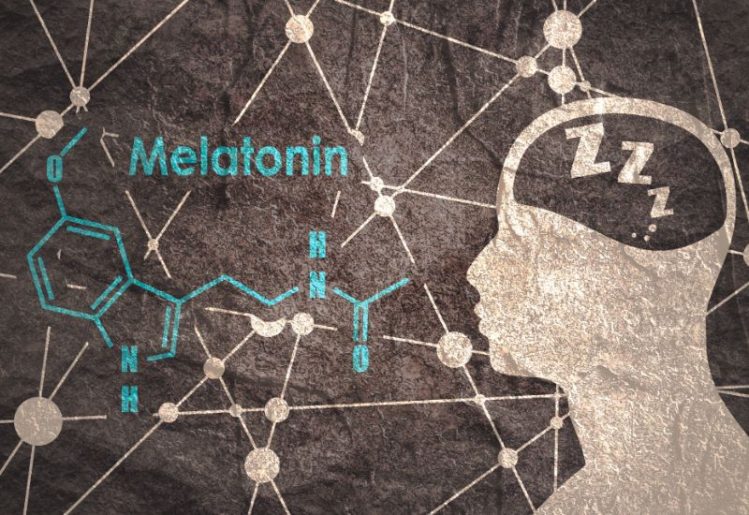New Insights Into Melatonin and Male Fertility
Understanding how melatonin works in your body and impacts numerous biological processes is helping scientists to zero in on how this hormone may affect male fertility. New findings on the connection between melatonin and male fertility could help countless couples start a family. Here is what you need to know about this emerging research and how it may help you in your efforts to conceive.
What is Melatonin?
 Melatonin is a hormone that is naturally occurring in the body. This neurohormone is produced by the pineal gland located in the brain. The availability and concentration of melatonin are regulated by the dark and light phases of the day, influencing the body's natural circadian rhythms.
Melatonin is a hormone that is naturally occurring in the body. This neurohormone is produced by the pineal gland located in the brain. The availability and concentration of melatonin are regulated by the dark and light phases of the day, influencing the body's natural circadian rhythms.
For instance, melatonin production increases when the sun goes down, prompting the body to prepare for sleep. Conversely, the body's release of melatonin decreases when the sun comes up in the morning, sending the signal to your brain that it is time to wake up. This crucial function of melatonin is the reason so much of the research surrounding melatonin focuses on how its availability can improve sleep cycles.
Exploring the Relationship Between Melatonin and Male Fertility
It is also widely known in scientific circles that this hormone influences the reproductive functions of some animals through the natural circadian rhythm which is supported by the variations in melatonin levels. While prior research had focused on the impacts of melatonin on seasonal breeding animals, new evidence shows that the hormone also has an impact on the reproduction of non-seasonal animals such as humans.
Knowing that the hormone has been shown to affect fertility in other species, it makes sense that the fertility of human males may also be impacted by the presence of melatonin. Researchers are unlocking new data on how melatonin works to boost the energy of a male's spermatozoa by increasing their speed and agility. This means that the sperm is more likely to be able to reach the female's egg, increasing the odds of fertilization. Melatonin has also been shown to guard sperm from harmful oxidative stress. This protection improves the overall quality of the sperm, a key component of the fertilization process.
When looking at the specifics of the impact of melatonin on reproductive regulation, scientists have found that the hormone also regulates the production and release of two other key neurohormones known as GnRH and LH. Secondly, melatonin serves to regulate and support testosterone synthesis as well as the natural maturation process of the testicles. Lastly, the hormone is a powerful radical scavenger, meaning that it protects against potential damage to the testicles at the hands of inflammation or dangerous environmental toxins. The better the health of the testicles, the more likely that you will be able to conceive naturally.
One study used 15 human semen samples and divided them into a control group, a group treated with melatonin and a group exposed to oxidative stress through the use of cadmium. The three groups were analyzed at increments of 30 minutes, 6 hours and 24 hours of exposure to either the melatonin or the cadmium or both.
The results showed that there was a decrease in the mobility of sperm as time wore on. The DNA integrity of the sperm also decreased with time and an increase in exposure to oxidative stress. However, the sperm samples in the group treated with melatonin were able to withstand the exposure to the cadmium and still thrive, signaling to researchers that the hormone may be instrumental in boosting the quality of sperm.
The bottom line is that melatonin has been shown to impact the male body's secretion of testosterone as well as gonadotropins. At the same time, research has shown that melatonin may also improve sperm quality.
How You Can Boost Your Intake of Melatonin
 You have a number of options if you are struggling with infertility and want to boost your intake of melatonin. While melatonin is not widely available in many common foods, there are still a handful of foods that supply this hormone. The two richest sources of melatonin are tart cherry juice and goji berries. This is why these two foods have been shown to improve sleep cycles in some subjects.
You have a number of options if you are struggling with infertility and want to boost your intake of melatonin. While melatonin is not widely available in many common foods, there are still a handful of foods that supply this hormone. The two richest sources of melatonin are tart cherry juice and goji berries. This is why these two foods have been shown to improve sleep cycles in some subjects.
Other foods that have been shown to be good sources of melatonin include milk, eggs and fish. You will also find melatonin in nuts such as pistachios and almonds.
For a more targeted approach to ensuring that your melatonin levels are optimal for reproduction purposes, you may want to turn to the aid of a supplement. There are a number of high-quality supplements that provide this hormone, giving you peace of mind of knowing that your melatonin levels are not what is impacting your fertility.
If you are a male wanting to boost your fertility, you would be wise to look more into the ways that the use of melatonin can help you to achieve your goal of conceiving a child.





